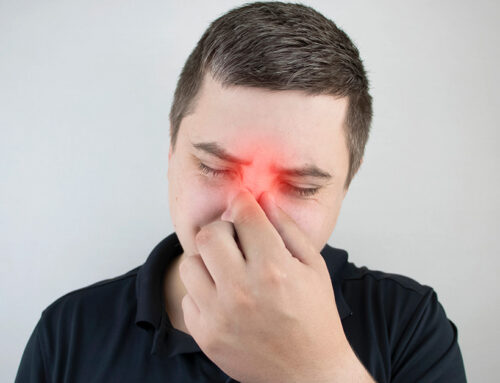
The Link Between Sleep Apnea and Chronic Sinus Congestion
Sleep apnea and chronic sinus congestion may seem like two separate conditions, but for many people, they’re closely connected. If you suffer from one, you might unknowingly be affected by the other. Understanding the link between these two issues can help you find lasting relief and improve both your breathing and your sleep.
What Is Sleep Apnea?
Sleep apnea is a sleep disorder where breathing repeatedly stops and starts during sleep. The most common type, obstructive sleep apnea (OSA), occurs when the muscles in the back of your throat relax too much, temporarily blocking your airway. This interruption in breathing can happen dozens—or even hundreds—of times a night, leading to poor sleep quality, loud snoring, daytime fatigue, and long-term health risks like high blood pressure and heart disease.
How Sinus Congestion Affects Breathing at Night
Chronic sinus congestion makes it hard to breathe through your nose, especially when lying down. This often forces people to breathe through their mouth during sleep. Mouth breathing can dry out the throat, increase snoring, and reduce airflow, all of which may worsen existing sleep apnea or mimic its symptoms. In fact, some people with persistent nasal blockage are misdiagnosed with sleep apnea, when in reality, their nasal obstruction is the root cause of their disrupted breathing.
The Vicious Cycle Between Sinus Issues and Sleep Apnea
Chronic sinus congestion can lead to swelling in the nasal passages, often due to allergies, infections, or structural issues like a deviated septum or nasal polyps. This swelling narrows the airways and increases resistance during breathing. In patients with sleep apnea, this makes it even harder to maintain steady airflow at night.
On the other hand, people with untreated sleep apnea may experience more sinus problems over time due to reduced oxygen flow and increased inflammation in the upper airway. Sleep apnea can also lower the immune system’s ability to fight off chronic sinus infections.
Shared Symptoms to Watch For
Because sleep apnea and chronic sinus congestion overlap in symptoms, it's important to recognize the signs of both. You may be dealing with both conditions if you experience:
- Loud snoring
- Frequent nighttime awakenings or gasping
- Chronic nasal stuffiness
- Morning headaches or dry mouth
- Daytime sleepiness or fatigue
- Difficulty breathing through your nose, even when not sick
How a Sinus Specialist Can Help
If you suspect that sinus issues are contributing to sleep apnea—or vice versa—it’s important to see a sinus and nasal specialist. Both the structural and inflammatory causes of chronic nasal blockage need to be evaluated. Treatments may include medical therapy for allergies or sinus infections, in-office procedures like balloon sinuplasty, or surgical correction of structural obstructions.
By restoring clear nasal airflow, many patients experience better sleep and even reduced sleep apnea symptoms. In some cases, improving nasal breathing can enhance the effectiveness of CPAP machines used to treat sleep apnea.
Breathe Easier—Day and Night
Chronic sinus congestion doesn’t just impact your quality of life—it may also be disrupting your sleep. If you’re struggling with both nasal blockage and poor sleep, don’t assume it’s just allergies or aging. The two conditions are often linked, and addressing both can dramatically improve your health.




